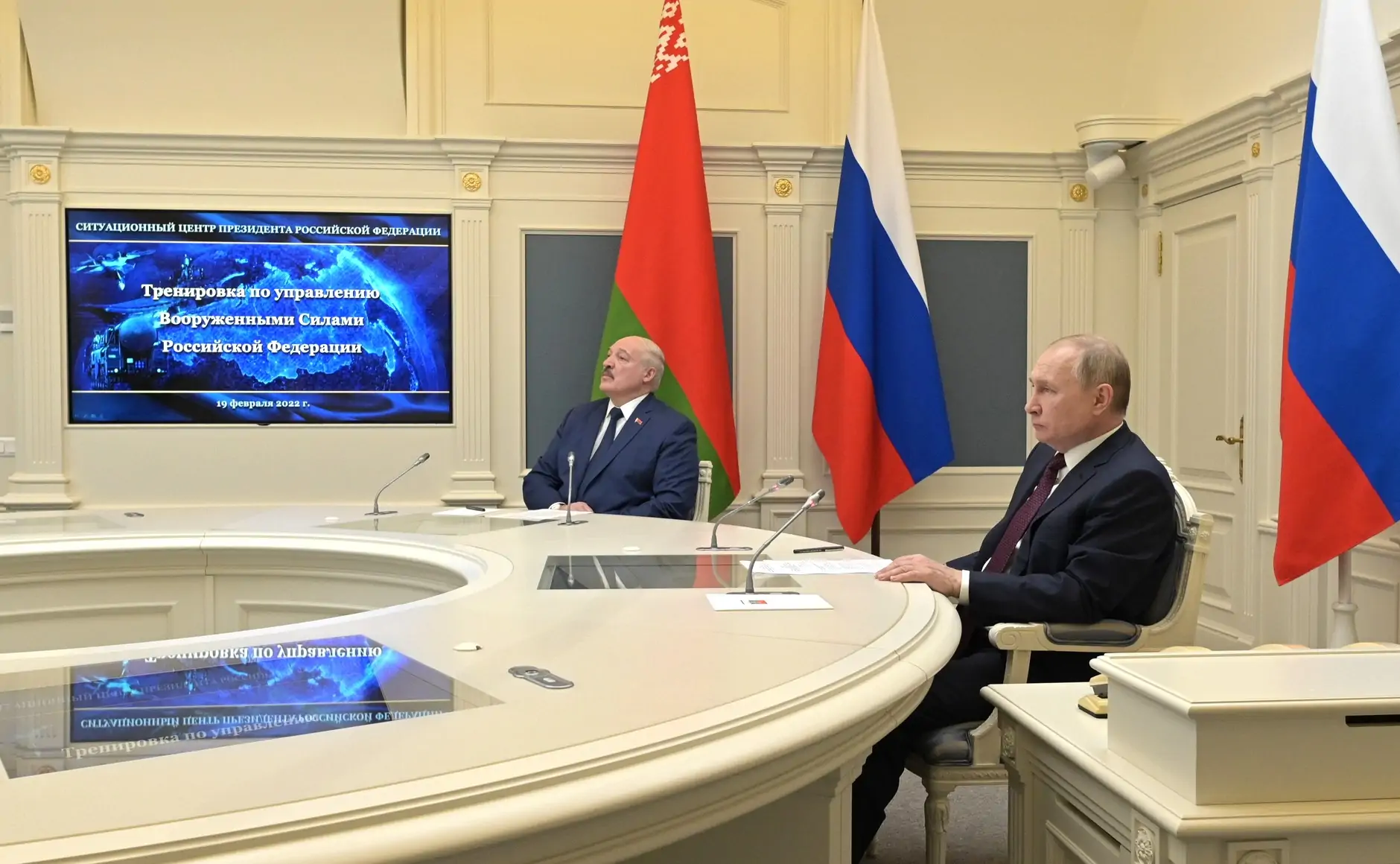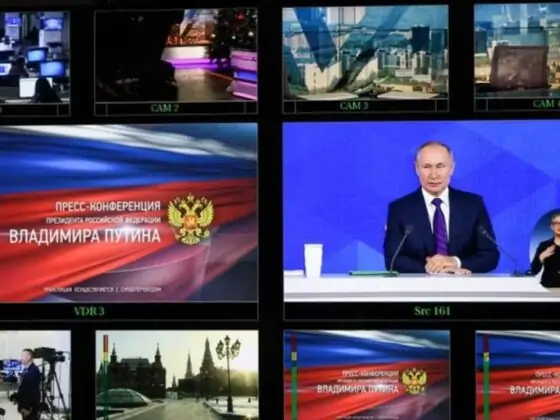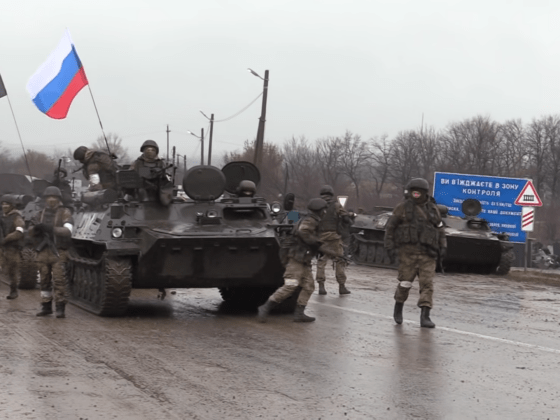On February 24, 2022, Russian President Vladimir Putin announced a “special military operation” in Ukraine. Although the scale of the invasion caught many analysts by surprise, this was not the first time Russia had invaded the sovereign territory of another state in the Putin era. The rationale for two earlier episodes—the 2008 war with Georgia and the 2014 assault on Crimea and Donbas—can help shed light on the motivations behind the war of 2022. Because the perceived national interests of states evolve, we may glean insights into how the Kremlin’s, and in particular, Putin’s, view of geopolitics has changed by asking the following questions about those events: How does Russia justify military aggression? What audiences are its leaders addressing? Finally, what does the rationale tell us about the Kremlin’s beliefs and likely war aims?
The analysis reveals both continuities and radical breaks in Russia’s casus belli. The Georgia War rested on President Dmitry Medvedev’s claim to defend compatriots in South Ossetia against Georgian assault. Despite the geopolitical backdrop, he made little overt reference to countering the West or NATO enlargement. Putin justified the Crimea invasion using the same humanitarian rationale—protecting Russians—but also laid out a series of grievances about the West’s neglect of Russian interests. Both leaders sought to appeal to audiences both in Russia and outside it.
Finally, in announcing his 2022 invasion, Putin invoked both prior rationales, but also warned of an existential threat to Russia itself. Oddly, though, given the supposed stakes, Putin promised his audience only a limited and restrained military response. Putin was also unable to point to any immediate provocation requiring urgent military action, let alone the full-scale invasion of a sovereign country. Given these contradictions and shaky pretexts, unlike in the two previous episodes, it appears that Putin was no longer concerned with international opinion.
Real or Asserted Perils?
Any perpetrator invading a weaker sovereign state will face the challenge of justifying its actions to the world. As one might expect, Russia repeatedly sought to couch its actions in terms of self-defense, a move intended to garner sympathy for its cause and pose as an enforcer of international law. To make this case, Putin-Medvedev offered rationales that shifted in emphasis along two dimensions. First is whether the purported threat that justifies war applies to the Russian state or to co-ethnics in the neighboring state in need of “protection.” The second is whether the threat is imminent or long-term. Aside from claims rooted in self-defense, Kremlin rhetoric at times relied on other pretenses, including the invocation of precedents, charges of Western hypocrisy, and historical claims, which were variously marshaled to appeal to distinct audiences.
The Georgia War in 2008
Although the 2008 war was ostensibly about Georgia, it came amid broader tensions with the West. At the NATO Bucharest Summit in April, Bush Administration officials worked behind the scenes to craft a statement declaring that both Georgia and Ukraine would one day become members. In the larger scheme of Russia’s grievances against the West (more below), Georgia’s pro-American government did not pose a direct threat to Russian territory but instead represented an outpost of American power. Russia used the August war against Georgia’s breakaway territories to signal its displeasure with the West’s disregard for Russian interests and the enlargement of NATO in particular.
Yet the Kremlin justified its attack more narrowly on the grounds of defending compatriots from attacks from Tbilisi. In the course of Georgian President Mikheil Saakashvili’s efforts to reintegrate Georgian territory, Georgian forces and South Ossetian separatists were engaged in sporadic skirmishes in the months before the war. The Russian government had also been distributing passports to residents of Abkhazia and South Ossetia, making them citizens of the Russian Federation overnight. Thus, Russian President Medvedev appropriated the language of “responsibility to protect” to justify an invasion of the breakaway territories. He blamed Georgia for an “act of aggression” in violation of international law” and asserted that “civilians, women, children, and old people are dying today in South Ossetia, and the majority of them are citizens of the Russian Federation.” He called the invasion a “peace enforcement operation” to protect civilians and “force the Georgian side to (agree to) peace.” This justification self-consciously mirrored and parodied the rationale for NATO’s bombing of Serbia in defense of Kosovar Albanians in 1999 and Western states’ subsequent recognition of Kosovo’s independence in February 2008, both of which the Russian foreign policy establishment decried. Russia followed its intervention with a “peacekeeping” operation through which troops continued to occupy the region.
Later comments continued to frame the war narrowly as a defense of vulnerable citizens consistent with international law. On August 26, Medvedev accused Saakashvili of violating international law by committing genocide. One month after the cease-fire, Prime Minister Putin, suspected by many of really deciding foreign policy, still referred only to the casus belli of quelling instability in South Ossetia without emphasizing the broader east-west confrontation. Despite the geopolitical backdrop, neither Medvedev nor Putin claimed that Georgia represented a threat to the Russian state via NATO.
The Annexation of Crimea in 2014
An overarching narrative in the Putin era has it that NATO and the West seek to encircle, dismantle, or humiliate Russia. Accompanying this is a long lineage of claims about how areas on Russia’s borders serve as proxies for the West to reach Russia. In this conception, the United States, EU, or NATO controls or arms states or militant groups, which serve as staging points or ideological laboratories to weaken Russia through its soft underbelly. This narrative—post-Soviet regions as the tip of the spear—is then used to build public support and justify action against those proxies since Russia cannot attack NATO directly. This rationale, implicit in Russia’s motivation for initiating the war with Georgia, was articulated more explicitly when it came to Ukraine.
The Euromaidan protests in opposition to President Viktor Yanukovych were about both corruption and foreign policy. In objecting to Yanukovych’s last-minute decision not to sign the Deep and Comprehensive Free Trade Agreement with the EU, the protests represented a pro-West, and therefore anti-Russian, geopolitical tilt. Once Yanukovych fled and leaders of the Euromaidan formed a government, Russia appeared to suffer a replay of its defeat after the 2004 Orange Revolution. Although the 2014 protests were a grassroots initiative, Putin presumably saw only the latest deceitful American salvo—overthrowing a legitimately elected president—aimed at undermining Russia’s interests.
Putin gave his most comprehensive rationale for ordering the occupation and annexation of Crimea only after the operation had already concluded. His speech on March 18, 2014, which was ostensibly intended to celebrate the vote to join Crimea with Russia, had two parts: playing up the threat to Russian speakers in Ukraine and rehashing his litany of grievances against the West.
After recounting a politicized history emphasizing Crimea’s ties to Russia, Putin argued that Russia was forced to intervene on humanitarian grounds. He claimed the new government “wanted to seize power and would stop short of nothing. They resorted to terror, murder, and riots. Nationalists, neo-Nazis, Russophobes, and anti-Semites executed this coup.” In response, “the residents of Crimea and Sevastopol turned to Russia for help in defending their rights and lives.”
After invoking the “well-known Kosovo precedent” to justify Crimea’s engineered referendum to join Russia, Putin then moved on to articulate his resentment toward the West for its hypocrisy and neglect of Russia’s interests. Whereas “Russia strived to engage in dialogue” with the West, “we saw no reciprocal steps. On the contrary, they have lied to us many times, made decisions behind our backs, placed us before an accomplished fact. This happened with NATO’s expansion to the East, as well as the deployment of military infrastructure at our borders.”
In the most memorable line of the speech, Putin argued that “Russia found itself in a position it could not retreat from. If you compress the spring all the way to its limit, it will snap back hard.” In other words, Russia would no longer stand by and accept the West’s arrogance and dismissiveness of Russia’s interests. “Snapping back” by forcing a change in the territory was, at the time, a drastic step, signaling the depth of Russia’s displeasure.
The annexation of Crimea was presented as a legal and humanitarian action that, incidentally, enabled Russia to demonstrate its hard power where NATO was impotent to stop it. Yet, despite the heated rhetoric, Putin made no claim that Russia itself was threatened.
Putin’s Unfinished Business in Ukraine
Following a historical screed that Putin published in July 2021, in which he denied the existence of Ukrainian statehood, he returned to his geopolitical grievances, but with unusual intensity, on February 24, 2022. He began by railing against NATO expansion and enumerating the same grievances as in 2014: Kosovo, Iraq, Libya, and accusations of Western hypocrisy and bad faith. Then, Putin went beyond previous rhetoric and warned of a direct threat to Russia: “As NATO expands to the east, with every passing year, the situation for our country is getting worse and more dangerous.”
If his position was not clear enough, he made clear that he viewed the stakes as existential:
And for our country, this is ultimately a matter of life and death, a matter of our historical future as a people. And this is not an exaggeration – it is true. This is a real threat not just to our interests, but to the very existence of our state, its sovereignty. This is the very red line that has been talked about many times. They crossed it.
Putin then reverted to a familiar pretext, “genocide against the millions of people living [in the Donbas] who rely only on Russia, only on us.” The aggressors were the Ukrainian government comprised of “extreme nationalists and Neo-Nazis,” similar to “gangs of Ukrainian nationalists, Hitler’s accomplices” during World War II. Yet they were a threat not only to Russians in Ukraine: “Russia’s clash with these forces is inevitable. It is only a matter of time: they are getting ready, they are waiting for the right time. Now they also claim to acquire nuclear weapons.” This triumvirate of existential threats, alliterative in English—NATO, Nazis, and nukes—paved the way for Putin’s pursuit of “demilitarization and denazification of Ukraine.”
Reading between the lines, Russia was targeting Ukraine to punish the West for its many transgressions because Ukraine, not in NATO, was the West’s Achilles Heel—similar to the rationale of previous invasions. This time, however, in pursuing regime change and demilitarization via a full-scale war, Putin also sought to punish Ukrainians for electing pro-Western leaders and striving to exit Russia’s geopolitical orbit.
Putin finally spoke directly to his archenemies: “Whoever tries to hinder us, or threaten our country or our people, should know that Russia’s response will be immediate and will lead you to consequences that you have never faced in your history.”
Conclusion: Contradictions and Overconfidence
In contrast to the rationale for the previous invasions, Putin pulled out all the rhetorical stops to paint a dire picture of the forces arrayed against Russia: a long-term buildup of forces in Eastern Europe and a short-term plot by Nazis to acquire nuclear weapons, backed by NATO. To an uninformed observer, Putin’s scowling demeanor and steely resolve would be understandable on the premise that time is working against Russia and war is inevitable.
However, two contradictions emerge from Putin’s latest casus belli. First, the timing of Russia’s invasion was arbitrary, as there was no imminent threat. The absence of anything on the order of a “Russian 9/11” led some analysts to speculate that Russia would manufacture a false flag attack, as Biden Administration explicitly warned. Yet, despite some disputed claims amid murky circumstances in the Donbas, there was no provocation that Putin could point to as the catalyst for urgent military action.
Second, given the scale and seriousness of the purported threat facing Russia, one might expect Putin to make a case for a large-scale war to roll back the Western advance. Yet he announced only a “special military operation” that explicitly excluded “the occupation of Ukrainian territories” and even promised, “We are not going to impose anything on anyone by force.” Instead of beating the war drums to prepare the public for a massive societal mobilization and potential geopolitical upheaval, the Kremlin had denied for months that Russia was planning any military action against Ukraine. By not acknowledging that Russia was about to fight a war, Putin could not expect to benefit from rallying effects.
The disconnect between the apocalyptic rhetoric of threats to Russia, the supposedly limited response, and the reality of a full-scale invasion implies that Putin expected a quick victory with minimal Russian casualties and assumed Russians would not obtain information independent of official sources. After all, a short, victorious war would not require any sacrifice from the Russian population.
Putin’s casus belli also indicated that he had moved beyond caring about public opinion outside Russia. In previous speeches, his broadsides against American hegemony and NATO expansion may have appealed to some Western audiences, while the claim to be upholding international law provided the semblance of an argument that Russia’s supporters abroad could marshal in its defense. Now, however, Putin’s war rationale rested on outlandish claims about Ukraine, including of a Nazi government headed by a Jewish president, and an imminent danger to Russia’s continuing existence despite the absence of any observable changes on its western border. Putin’s words signaled his willingness to break decisively with the West before the unprovoked invasion of Ukraine made that break irrevocable.
Scott Radnitz is the Herbert J. Ellison Associate Professor of Russian and Eurasian Studies in the Jackson School of International Studies at the University of Washington.











